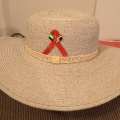Welcome home! Please contact lincoln@icrontic.com if you have any difficulty logging in or using the site. New registrations must be manually approved which may take several days. Can't log in? Try clearing your browser's cookies.
Rewiring
 lobster
lobsterPureland Veteran
lobster
lobsterPureland Veteran
in Meditation

As we know the body, mind, universe are all interconnected. Rewiring the mind is the most useful technique in Dharma.
Some start with the heart eg Sufism.
Some with the body eg Hatha Yoga.
Some with the Universe eg. Kabbalah.
In a sense, as simians, we are not configured in an optimum way but randomly put together by karma, evolution, chance and OM IC ARE ON viral manifests etc
How to rewire? Tips and postcards to the usual address …
4





Comments
I think the mind is the place to begin. Insight into what is wholesome and beneficial, and what is not is a good starter which makes you stop feeding a lot of negative impulses.
The 4NT & 8FP are this simian's bananas.
As @how already mentioned, by studying the 4NTs, and at every opportunity PUT INTO PRACTICE ...after a while the Jackeline of all trades (master of all) "Awareness" will use its electrical skills to gradually start to rewire the neuropathways (out with the old and in with the new)...and in doing so, this vibrating bundle of energy flux which BTW is held together by karmic glue, aka the psycho-physical phenomenon called the self, will flow more smoothly...
Thus have I heard Neurons that fire together wire together better...
Simian likes banana, yet simian smashes banana for rotten apple. Careful! Careful! Careful...with that axe... Eugene....
You could say that mental rewiring is the objective of practice, as much as it is a technique.
To that end, mindfulness is a broadly useful tool to reach that objective. The 4NT are in fact pointing to mindfulness - mindfulness of suffering, of the arising of suffering, of its cessation, of the path to get there. Mindfulness focused on one objective.
An enlightened mind is a rewired mind, you think?
Agreed.
Some good pointers from everyone.
The mind responds well to techniques. For example I am burning lemon grass essential oil in an oil burner at the moment. Sounds very new agey but …
Promotes mindfulness: Lemongrass is a good oil for meditation as it clears the mind, aids concentration, and promotes a feeling of centeredness.
https://www.asutra.com/blogs/asutra-life/lemongrass-essential-oil-benefits-the-super-power-oil
Our first evolutionary (most primitive sense gate) is smell. This is one of the quickest ways to rewire/change the mood of the human monk monkey.
Just for example:
pure essential oils can:
and so on …
https://en.m.wikipedia.org/wiki/Rasayana
Sometimes wires are not the only means of interior communication
… wifi was developed by surprising historical wireless work. Just a side circuit.

We may find wires are not required and many preprogrammed networks are not needed or counterproductive.
In a sense we have to disconnect, allowing lesser fusings.
New wiring carries our current destinations. We may have bells and tangles, circuit breakers and sparks.
Too many wires. I read this from that article and that from this. I don't have enough RAM to just grab from all these sources and combine them into some ultimate understanding I can make sense of. There is so much truth but the truth is on different tiers, in different languages. What am I to do when I can't sort the tiers so easily by myself? Is it even a tier system or is it a yarn? I don't have time to sort through all of written philosophy and religion for myself let alone contemplate unwritten and lost concepts. I have only one life and most of it is distracted by senses or confused by mistrust. I have to trust something. There is not enough time in memory to not trust if I am to build upon. What do I trust? Where do I start building? We are still here so we are not yet done. Where do I begin? I think I have to start with honesty. My honesty is I do not want to be faulty.
It is true that really getting to grips with Buddhism involves a lot of reading. Certainly when I first started I read pretty indiscriminately: Buddhism for Dummies, Tibetan Gelugpa texts, Thich Nhat Hanh, several Buddhist magazines online. When you’re orienting yourself it makes a lot of sense to cast the net wide.
But I found as time went on that I got more selective. I started reading sutra selections by various authors and translators, and dharma teachings by modern teachers. I read more slowly, and started looking for teachers who came highly recommended. So don’t despair, progress is definitely possible.
I think for a beginning Buddhist I would still recommend Thich Nhat Hanh, his books are easy to read and don’t involve too many esoterica. Or possibly “What the Buddha Taught” by Wapola Rahula which @lobster linked in pdf form a few posts ago, thats also a good beginners book.
This one: http://www.ahandfulofleaves.org/documents/What the Buddha Taught_Rahula.pdf
What is greater than God, worse than evil,
The poor have it, the rich require it, The Buddha found it
And if you eat it, you die?
Nothing